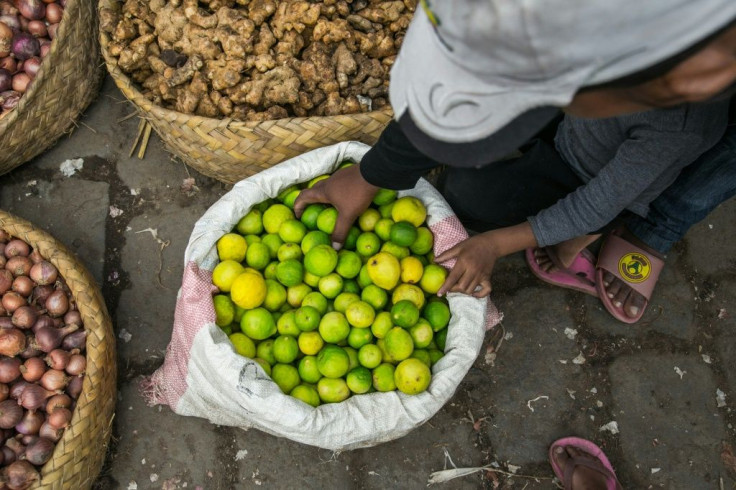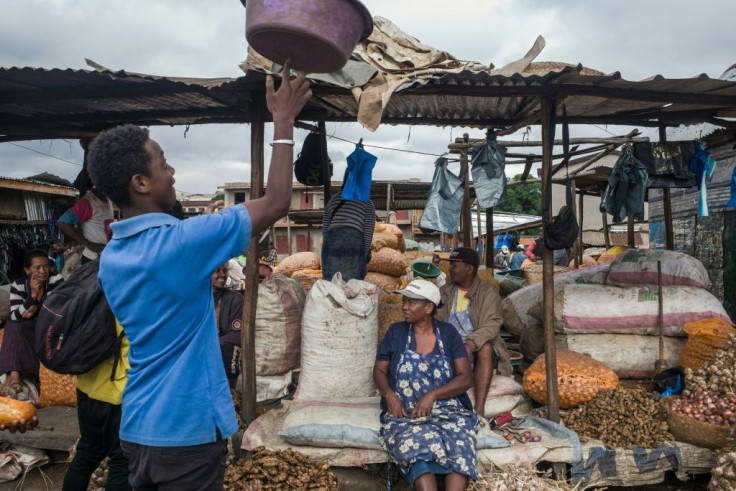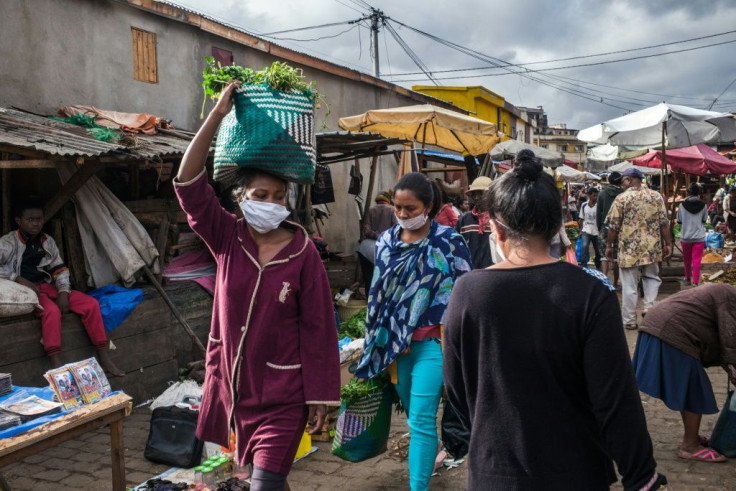Madagascar 'Anti-virus Brews' Sell Like Hot Cakes In Local Markets
Nirina Ravolona knows all the secrets to the natural brews she sells at Ambodivona market, and no-one doubts her when she touts an infallible cure for coronavirus.
"A mix of ginger, lemon and onion will give the virus a good hiding," Ravolona declared, bolstered by her 20 years of experience.
She recommends "spicy products" to boost the immune system and thus thwart the dreaded microbe.
The claim has no backing at all in medical science.
But there was no sign of scepticism among her customers in Madagascar's capital Antananarivo, where the 55-year-old is politely known as "Madame" Nirina.
"The Malagasy turn to household remedies every time there is an epidemic, it's our tradition," she said.

Coronavirus has infected more than half a million people around the world, killing at least 21,000 of them, since it was first detected in December.
In Madagascar, where there have been 19 detected cases, President Andry Rajoelina has imposed a lockdown on the country's two main cities.
But impoverished citizens have largely ignored orders to stay home.
For many, the need to provide for their families has trumped fears of catching the deadly respiratory disease.

Ambodivona market bustled even more than usual this week as vendors latched onto the pandemic as a new business opportunity.
"After the president announced the first case of coronavirus, everyone rushed to buy lemon and ginger," said Olivier Toky Randrianandrianina, who usually only sells ginger.
"So I also ordered lemons from my suppliers," he explained, sitting behind a pile of citrus.
Randrianandrianina was right to branch out.
In just days, the price of lemons tripled from 2,000 ariary (54 cents, 50 cents of a euro) to 6,000 ariary per kilogram (2.2 pounds). Ginger prices have also jumped tenfold.
"If everybody is rushing to buy lemon, that must mean it works," said Gervais Ramiarinjatovo, who came to Ambodivona to stock up on the fruit.

For Randrianandrianina, the hype around so-called natural coronavirus remedies was just one sales opportunity like any other.
"It doesn't really interest me -- all I am doing is selling my products," said the doubting 30-year old.
"In any case, I don't really believe in this coronavirus," he added.
"It's an illness for Vazaha (Westerners) and the Chinese."
A few stalls away, Gino Andosoa Rasolofonianina offered dried eucalyptus and ravitsara tree leaves, believed to carry medicinal properties.
"We saw Facebook posts explaining the virtues of these plants, so we thought it would be a good investment," he said.
The 28-year-old suavely detailed the recipe for his "magic" tree-leaf concoction.
"You bring water to a boil and drop in five leaves," he explained, as easily as if he were describing the latest smart phone.
"You can then let the vapour diffuse into your house or drink the water as if it were tea."
It would not cure coronavirus, he specified, but provide protection against it as an antiseptic.
Madagascar's president himself has encouraged the use of alternative remedies as a way of "strengthening the antibodies" to coronavirus.
"We will make patient inhale ravitsara essential oils and provide them with high-calorie foods... in conjunction with medicine," said Rajoelina in one of several televised speeches this week.
The World Health Organization (WHO) has sounded a loud note of caution.
"The novel coronavirus is not a flu (and) ancient grand-mother remedies must be seen with doubt," said WHO country representative Charlotte Faty Ndiaye.
"To date there is no scientific study showing the effectiveness of any medicinal plant in Madagascar," she said.
"Given that there is no remedy to this epidemic, the Malagasy have nothing to loose," Nirina retorted.
"At worst they will waste money, and at best they immunise against the virus."
© Copyright AFP 2024. All rights reserved.





















